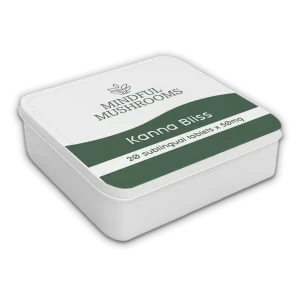Mornings are more than just the start of another day—they’re a powerful opportunity to shape the way you experience everything that follows. How you begin your day can influence your mindset, productivity, stress levels, and even how deeply you connect with others. In a world where everything moves quickly, establishing intentional morning rituals can anchor you, allowing both energy and calm to coexist within the same space.
We often wake up with a head full of tasks, notifications, and unspoken pressure. The temptation is to dive straight into it—check emails, scroll through messages, review calendars. But what if, instead of reacting to the world the moment we open our eyes, we gave ourselves a brief moment to set the tone? A moment to say: I’m awake, and I choose how to begin.
That’s where morning rituals come in. Unlike routines, which can be mechanical and mindless, rituals carry intention. They aren’t about checking off boxes, but about creating space—mentally, physically, and emotionally—to align with your best self before stepping into the day.
Let’s begin with breath. Before you even rise from bed, allow your first few breaths to be conscious. Feel the air enter and leave your body, gently waking you up from within. This simple act reconnects you with your physical presence and starts the day from a place of awareness, not urgency. From here, you can build rituals that work with your natural energy rhythms and needs.
For many people, mornings are when the mind is clearest and least burdened by the day’s distractions. This makes it an ideal time for stillness and intention-setting. You don’t need an elaborate meditation session. Even five minutes of silence, focused breathing, or journaling can act as a buffer between rest and responsibility. The goal isn’t to do mindfulness—but to be mindful of what you’re carrying with you into the day.
Here are a few gentle practices that can become anchors in your morning ritual:
- Hydration with awareness: Drink a glass of water slowly, noticing the sensation. You’re not just rehydrating; you’re reminding your body it’s supported.
- Natural light exposure: Step near a window or go outside. Letting natural light hit your eyes within the first hour of waking helps regulate your circadian rhythm, boosting alertness and stabilizing mood.
- Movement without intensity: Stretch, take a short walk, or do a few minutes of gentle yoga. This isn’t about fitness—it’s about mobility, breath, and warmth.
- Nourishment with intention: Whatever you eat or drink, take a moment to appreciate its smell, temperature, and taste. That pause is part of your ritual.
Importantly, none of this needs to be done perfectly or in a specific order. What matters is that the morning begins with presence. For some, lighting a candle or making a warm beverage becomes a ritual of grounding. For others, listening to calming music or reading a single page from a favorite book becomes a way to center the mind.
If you work from home or have unpredictable mornings, adaptability is key. You might not always have the same amount of time, but you can still hold onto the spirit of your ritual. Even on the busiest days, you can take 30 seconds to stand still, breathe, and remember who you are before the world tells you who to be.
Rituals also help create transitions. If your mornings currently begin with a rush from bed to laptop, try adding a five-minute buffer ritual. It could be opening a window for fresh air, stepping out onto a balcony, or standing barefoot for a moment on the floor, breathing intentionally. These small pauses can prevent the merging of sleep and work into a single, unbroken stream of stress.
Many people associate mornings with energy, but calm is equally important. By intentionally cultivating both—energy to act and calm to respond—you prepare your mind to handle the unexpected with clarity rather than reactivity. Energy without calm can feel frantic; calm without energy can feel sluggish. The balance is where power lies.
For those who struggle with anxiety or overthinking in the early hours, rituals provide structure without rigidity. They offer something known, something soothing, something that doesn’t require decision-making. That predictability is often what the nervous system craves to feel safe and stable. And from that place of safety, creativity and focus naturally emerge.
As you build your morning ritual, consider journaling your experience after a week. What changed? Were you more focused during your tasks? Did you feel less reactive in conversations? Sometimes the effects are subtle, but they’re cumulative. Over time, these rituals form a foundation that allows you to navigate each day with more clarity, more ease, and more authenticity.
Morning rituals don’t need to be borrowed from others or copied from trending routines online. They should reflect you—your pace, your needs, your intentions. And just like nature, they can evolve with the seasons of your life. The key is to begin with a choice: to meet the day with presence instead of pressure, with care instead of chaos.




